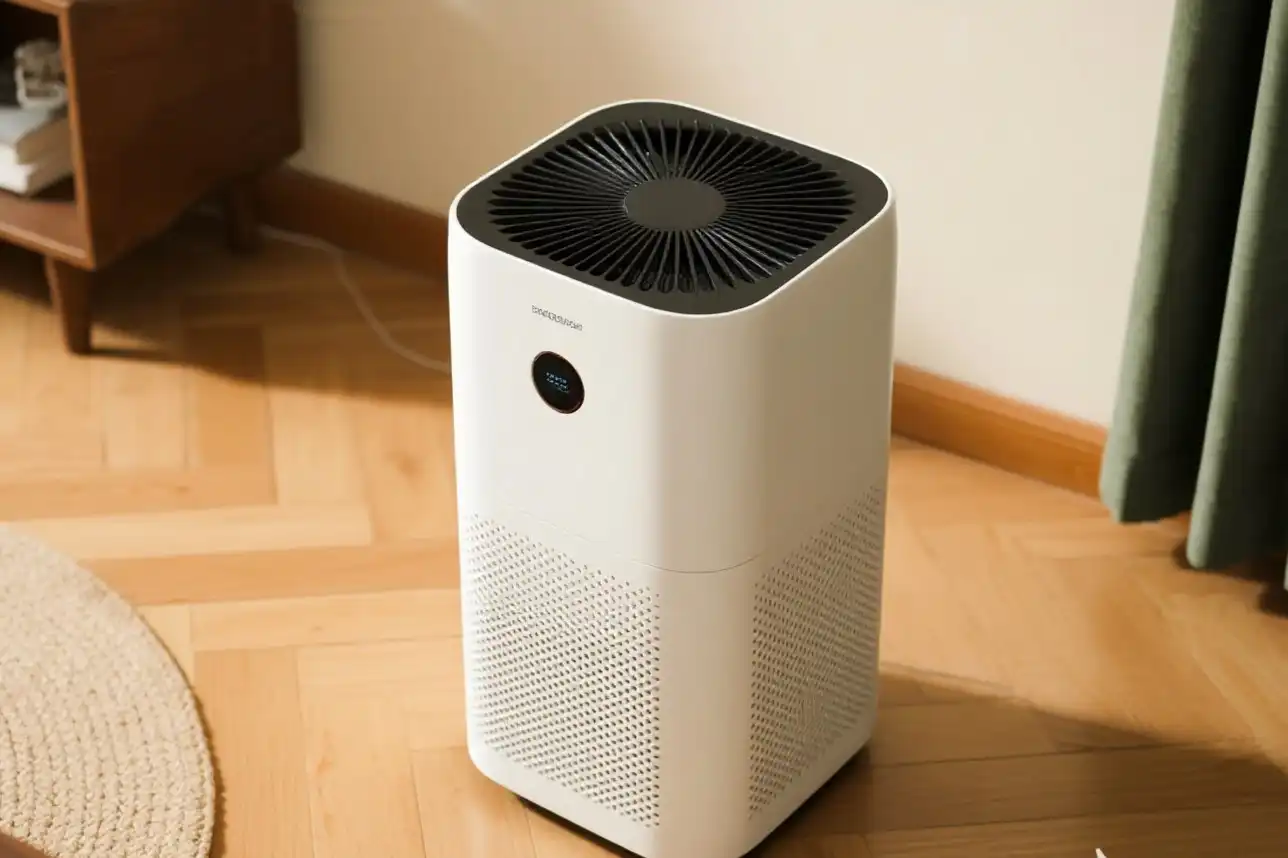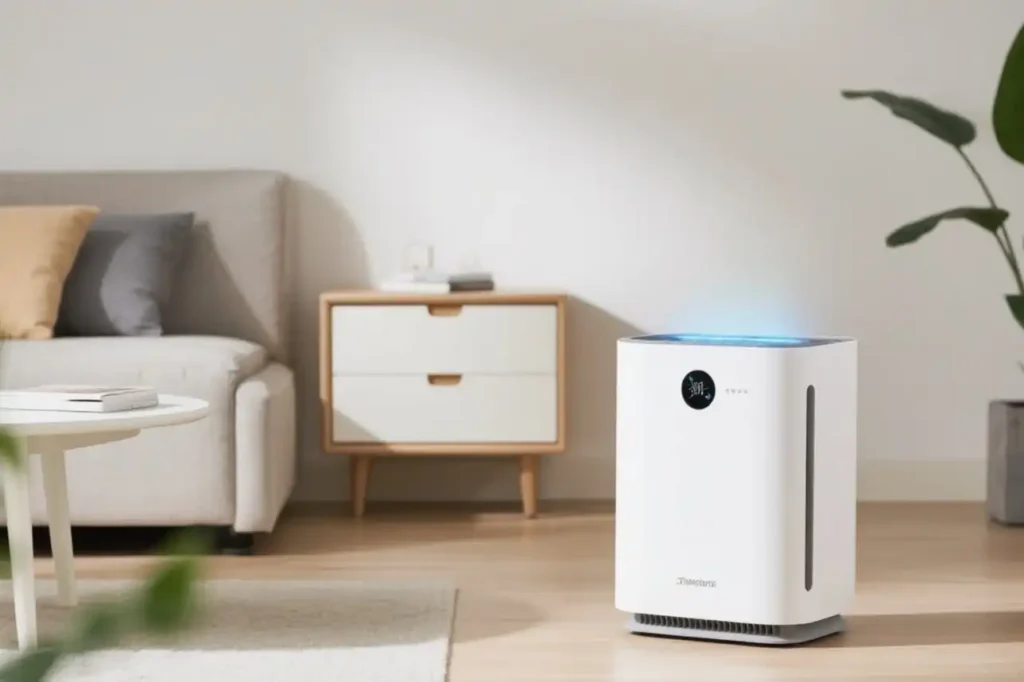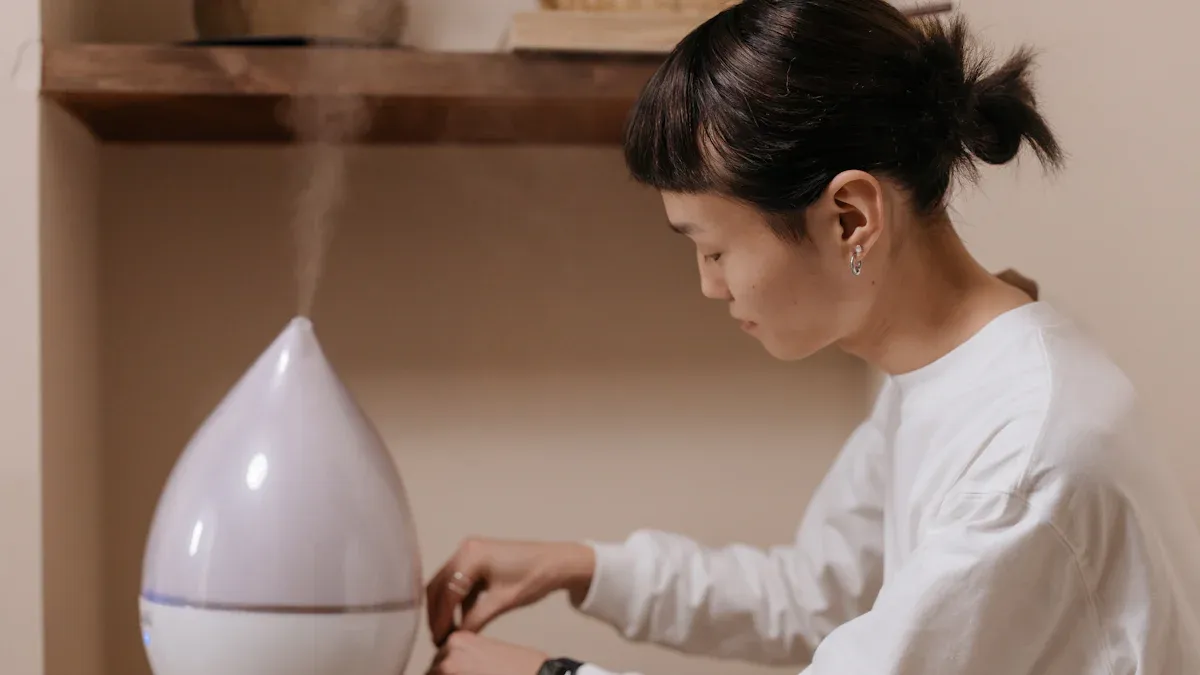
You may notice cleaner air at home with an air purifier, but you might wonder, are air purifiers worth it? The results can vary due to several factors. Choosing the right filter is crucial, and the size of the room also plays a big role. If you have allergies or pets, the effectiveness may differ. Living near smoke or pollution can also impact how well the purifier works. Check the table below to learn more about these factors:
| Factor | Recommendation | Effectiveness Impact |
|---|---|---|
| Room Size | Pick the right size for your room | Small units do not clean as well |
| Filter Type | Use True HEPA for allergies, carbon for smells | Cleans certain things from the air |
| Placement | Put it near beds or where pollution starts | Cleans best where you need it most |
So, are air purifiers worth it? The answer depends on your specific home environment and health needs.
Key Takeaways
- Pick an air purifier that fits your room size and needs. Make sure it has the right filter type for your space. This helps you get the best clean air.
- HEPA filters take out most allergens like dust and pollen. They also remove pet dander. Carbon filters help get rid of smells and smoke.
- Put your air purifier close to where you spend time. Keep it away from walls and electronics. This helps air move better and cleans more.
- Change the filters often to keep your purifier working well. This stops weak airflow and bad smells from happening.
- Do not use air purifiers that make ozone. Look for safety labels like CARB or UL 2998. These labels help keep you safe and healthy.
Benefits

Allergens and Dust
A HEPA air purifier can help lower allergens and dust at home. HEPA filters catch almost all tiny particles, like dust mites, pollen, and pet dander. Studies show these purifiers cut house dust mite allergens by over 75%. They also lower cat allergens by 76% and dog allergens by almost 90%. This helps people with allergies or asthma breathe better. You might feel fewer symptoms, especially if you use the purifier in bedrooms or living rooms. For the best results, pick a certified HEPA filter and use it as the maker suggests.
Odors and Smoke
Air purifiers with activated carbon filters can help remove bad smells and smoke. You may notice less odor from pets, cooking, or tobacco. These filters trap things that cause smells and smoke, so your home feels fresher. Research shows air purifiers lower indoor smoke and particles, even during wildfires. Studies from the California Air Resources Board and EPA say both store-bought and DIY air purifiers help with smoke and odors inside. This is very helpful if you live near busy roads, wildfire areas, or have smokers at home.
Sleep and Comfort
Cleaner air can help you sleep better and feel more comfortable. Air purifiers take away things that make you cough or have a sore throat at night. Many people say they have fewer allergy problems and sleep better with a HEPA air purifier. Studies show people with allergies or asthma wake up less and breathe easier when the air is clean. Kids, older adults, and people with health problems get the most help. You might also see less dust on furniture and feel your home is fresher, which makes life nicer.
Limitations
What They Can’t Remove
Air purifiers help with many things in the air, but they cannot fix every air problem at home. You might think they clean all the air, but some things are too hard for most devices.
- HEPA filters catch dust, pollen, pet dander, and mold spores. But they do not get rid of gases, chemicals, or smells.
- Activated carbon filters soak up smells and chemicals. They do not trap dust or things that cause allergies.
- UV purifiers can stop some germs from growing. But they do not take out particles or chemicals from the air.
- Ionizing purifiers can grab charged particles. But they do not remove gases or smells. Some even make ozone, which can be bad for you.
Note: Air purifiers cannot get rid of mold on walls or floors. You need to keep things dry and clean often to stop mold from spreading. Air purifiers only help with mold spores in the air, not the main problem.
You should know that air purifiers do not take the place of cleaning. You still need to dust, vacuum, and keep the air dry for a healthy home.
Ozone and Safety
Some air purifiers make ozone, which is not safe to breathe. Ozone can make it hard to breathe, especially for kids, older people, and pets. Machines like ozone generators, some UV-C purifiers, and electrostatic types can let out ozone. Ozone can also mix with other things in the air and make new bad stuff.
To keep your home safe, pick air purifiers with special labels. The California Air Resources Board (CARB) label means the device makes very little ozone. UL 2998 means the purifier makes no ozone at all. The Association of Home Appliance Manufacturers (AHAM) label also shows the purifier is safe and good quality.
Tip: Always pick a purifier with a HEPA filter and check for safety labels. Do not use ozone generators at home.
Not everyone will feel a big change in health with an air purifier. Some people breathe better or have fewer allergy problems, but others may not notice much. Studies show air purifiers can lower indoor pollution and help with breathing and blood pressure, but results are different for each person. Your results depend on your health, your home, and how you use the purifier.
Usage

You get the best results from your air purifier when you place it in the right spot. The size of your room matters. You should match the purifier’s Clean Air Delivery Rate (CADR) to at least two-thirds of your room’s square footage. In large or oddly shaped rooms, using more than one smaller unit can work better than a single big one. This creates overlapping clean air zones and helps cover every corner.
Keep your purifier about three feet off the ground. This height lines up with your breathing zone and can improve how well the purifier catches particles by up to 25%. Avoid putting the unit in corners or right against walls. Leave at least one to two feet of space from walls and three to five feet from furniture. This keeps air flowing smoothly. Stay at least six feet away from big electronics to prevent problems with performance. You can move your purifier to different spots during the year. For example, place it near windows in summer or by return vents in winter.
Filter Changes
Changing filters on time keeps your air purifier working well. Each filter type has its own schedule. The table below shows what to expect:
| Filter Type | Replacement Frequency | What Happens If You Wait Too Long |
|---|---|---|
| HEPA Filters | Every 6–12 months | Less clean air, more allergens |
| Activated Carbon Filters | Every 3–6 months | Odors and gases stay in the air |
| Pre-filters | Every 1–3 months (clean/replace) | Main filter clogs, less airflow |
| Washable Filters | Wash every 1–2 months | Lower efficiency, shorter filter life |
If you notice weaker airflow, more noise, or bad smells, your filter may need changing. Regular filter changes also help your purifier use less energy and last longer.
Continuous Use
Running your air purifier all the time gives you the cleanest air. You get steady relief from allergies and odors. This is most helpful if you have pets, live with smokers, or deal with lots of dust. Modern purifiers are safe for continuous use if you keep up with maintenance. You may see a small increase in your energy bill, but the health benefits often outweigh the cost. Some purifiers have quiet or night modes, so you can run them while you sleep. If you only use your purifier sometimes, pollution levels can rise when it is off. For the best results, keep your purifier running and check filters often.
Are Air Purifiers Worth It?
Investment vs. Benefits
When you ask if air purifiers are worth it, you should think about the money you spend and what you get back. The price depends on the type, size, and features you pick. Some air purifiers cost only $10, but others can be $3,000 or more. Look at the table below to see the average starting price for each kind:
| Air Purifier Type | Average Initial Cost Range (USD) | Key Features and Notes |
|---|---|---|
| Flat Filter | $10 to $70 | Basic filtration, traps dust, pet dander, mold spores; least effective; requires replacement every 1-3 months. |
| Electronic Filter | $300 to $1,000 | Uses electrical field to trap particles; requires cleaning every 3-6 months. |
| Extended Media Filter | $100 to $300 | Thick pleated material; installed in ductwork; may require HVAC retrofitting. |
| HEPA Filter | $600 to $3,000 | High efficiency, traps 99.97% of particulates; may restrict airflow; consult professional. |
| Ultraviolet (UV) Light Filter | $200 to $400 | Neutralizes germs and mold; does not remove dust/allergens alone; hybrid systems cost up to $1,800. |
| Portable Filters | $500 to $1,800 | No ductwork needed; easy installation; annual filter replacement $40-$100. |
You also need to think about costs that come later. Most air purifiers use electricity, but they do not use much. Many models add only $10 to $40 a year to your bill if you run them all the time. You will also need to buy new filters. HEPA filters last 6 to 12 months, and carbon filters may need changing two times a year. If you do not change filters, your purifier will not work well.
- Energy-saving models help you save money over time.
- Smart features like sensors or app controls make things easier but can cost more.
- Some purifiers have washable filters, so you spend less on upkeep.
When you look at the good things, air purifiers can help you breathe better. If you have allergies or pets, a HEPA purifier can catch dander, dust, and pollen. Carbon filters help take away bad smells and gases. If you live where there is wildfire smoke or lots of pollution, air purifiers can lower the amount of harmful stuff in the air. Studies show that using a HEPA purifier can help stop asthma attacks and make you healthier, which can save you money on doctor visits.
Tip: If you live where there is wildfire smoke or lots of pollution, the health benefits of an air purifier are often worth the cost.
But you should know what air purifiers cannot do. They do not remove all gases, like those from paint or cleaning sprays. They also do not lower carbon dioxide (CO2). You still need to clean and let fresh air in for the best air quality. If your purifier is too small for your room or you forget to change filters, you will not see much change.
Who Should Consider One
You might wonder if air purifiers are worth it for everyone. The answer depends on what you need and where you live. Some people get more out of an air purifier than others.
You should think about getting an air purifier if:
- You have allergies, asthma, or other breathing problems.
- You live with pets and want less dander, hair, and smells.
- Your home is close to busy roads, factories, or wildfire areas.
- You have kids, older family members, or anyone with weak immune systems at home.
- You see dust, smoke, or strong smells inside.
Kids, pregnant people, and older adults are more sensitive to indoor air pollution. Air purifiers can help keep them healthy.
You may not need an air purifier if:
- Your home has good airflow and you clean often.
- You do not have allergies or breathing problems.
- You live where the outdoor air is clean and there is not much pollution.
- You think the purifier will remove all pollution, including gases and CO2. Air purifiers cannot do this.
What makes an air purifier a smart buy?
- Check if you have indoor air problems, like dust, pollen, or pet hair.
- Measure your room and pick a purifier that fits.
- Choose a model with a HEPA filter for particles and a carbon filter for smells.
- Look for Energy Star to save on power.
- Think about how much filters cost and how often you need to change them.
- Do not buy purifiers that make ozone, as it can hurt your lungs.
- Make sure the purifier is quiet enough for you.
If you have allergies, pets, or live in a polluted place, you will likely see the most help. For families in wildfire areas, studies show air purifiers can stop asthma attacks and lower health costs. In these cases, are air purifiers worth it? Most experts say yes.
If you do not have these problems, or if you think a purifier will fix all air issues, you may not see much value. Remember, air purifiers work best when your home is clean and has good airflow.
When you ask if air purifiers are worth it, think about your health, your home, and your budget. The best choice depends on what you need.
When you use an air purifier at home, the air gets cleaner. You will have fewer allergens in the air. This can help you feel more comfortable. Studies say HEPA filters cut indoor particles by about 60%. They also help lower asthma attacks. But air purifiers cannot take out all gases or odors. Some models stop working well after a short time. For the best results, pick a purifier with both HEPA and carbon filters. Make sure the CADR matches your room size. Change the filters when you are supposed to. If you have allergies, pets, or live near pollution, air purifiers can help your health and comfort.
FAQ
What does a HEPA filter remove from the air?
A HEPA filter removes dust, pollen, pet dander, and mold spores. You get cleaner air because it traps 99.97% of particles as small as 0.3 microns. This helps you breathe easier, especially if you have allergies.
What size air purifier do you need for your room?
You need to match the air purifier’s Clean Air Delivery Rate (CADR) to your room size. Check the product label for the recommended square footage. If your room is large, you may need more than one unit.
What maintenance does an air purifier require?
You need to change or clean filters regularly. Most HEPA filters last 6–12 months. Carbon filters may need changing every 3–6 months. Always check the manual for your model’s schedule.
What are the signs that your air purifier is not working well?
You may notice more dust, weaker airflow, or strange smells. The purifier might make more noise. These signs mean you should check the filters or clean the unit.
What should you avoid when choosing an air purifier?
Avoid purifiers that produce ozone. Ozone can harm your lungs. Look for models with safety certifications like CARB or UL 2998. Always pick a purifier with a HEPA filter for best results.
See also
Uncovering the Truth About Air Purifiers and Their Safety
What Size Air Purifier Is Needed for Bedrooms, Living Rooms, and Offices
